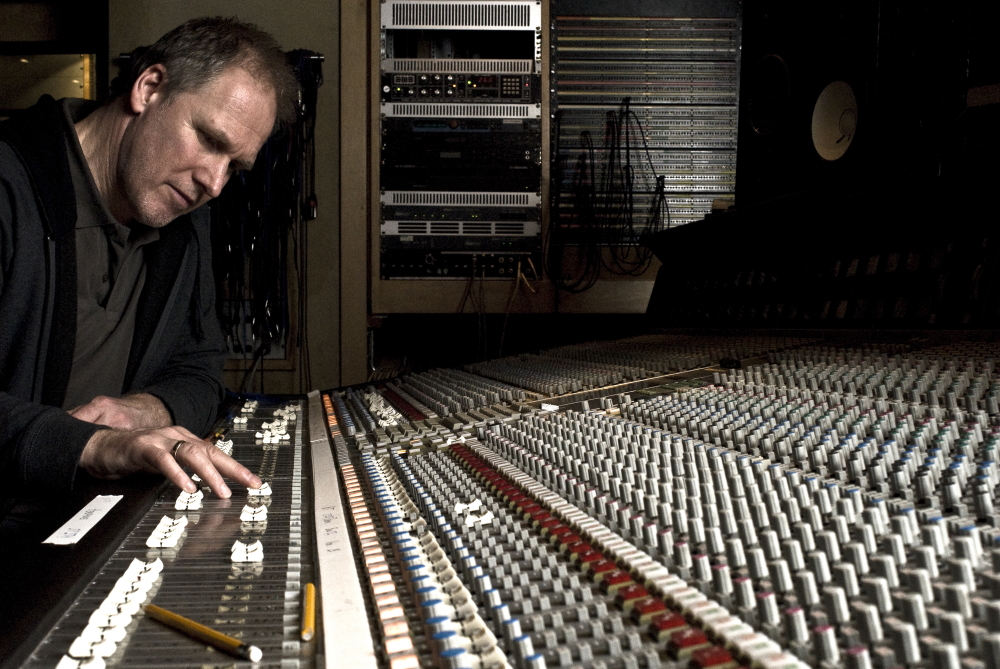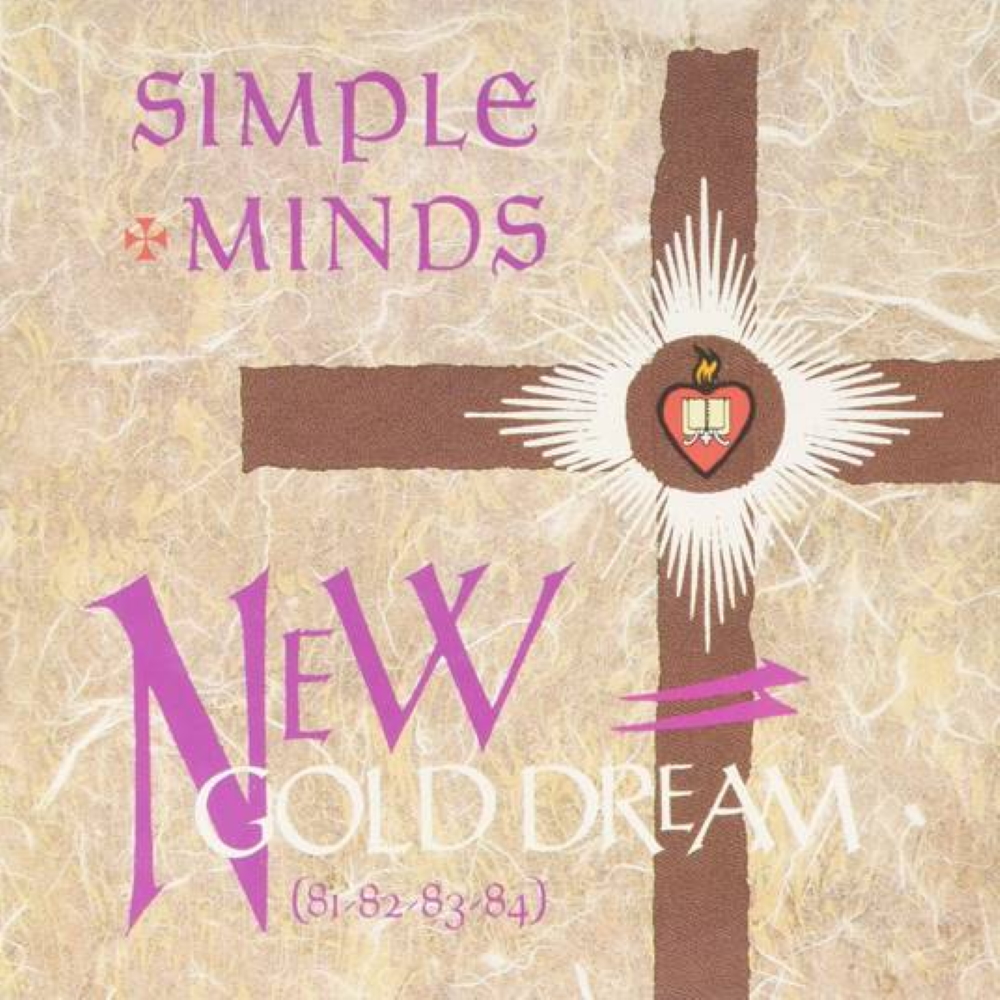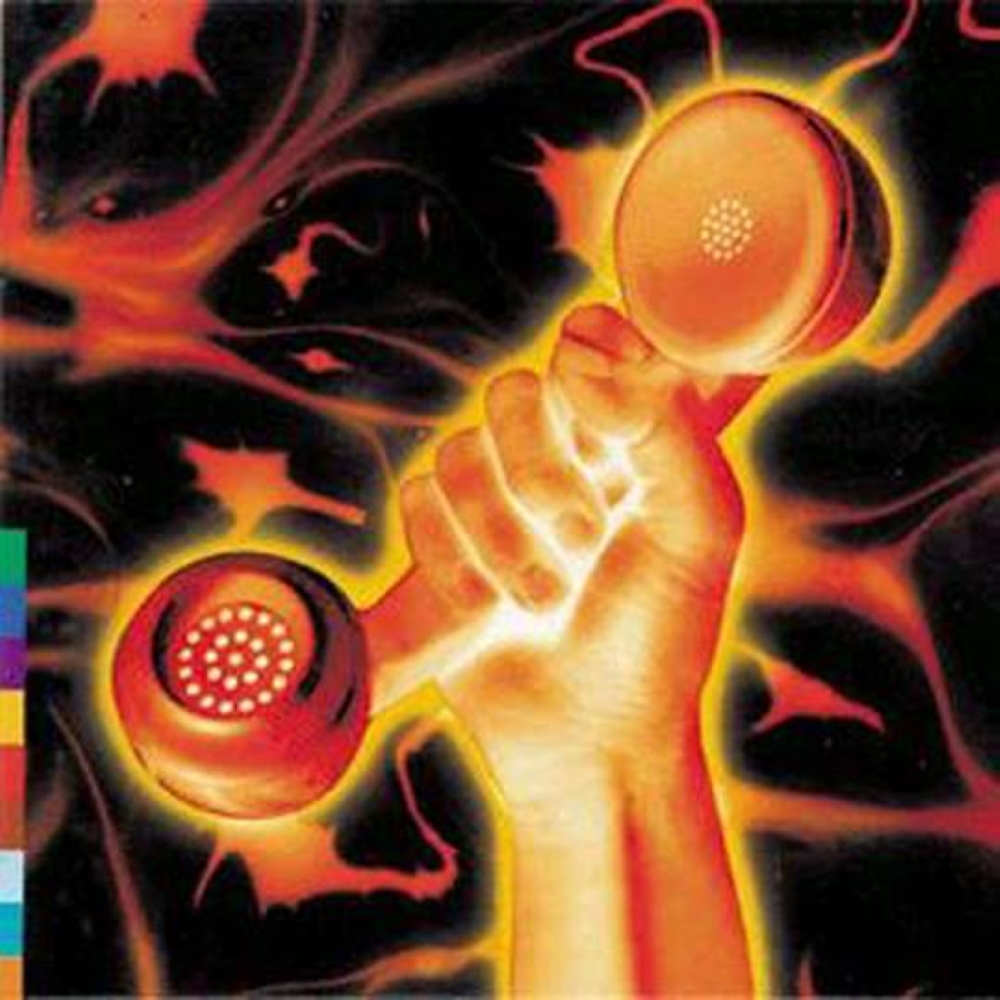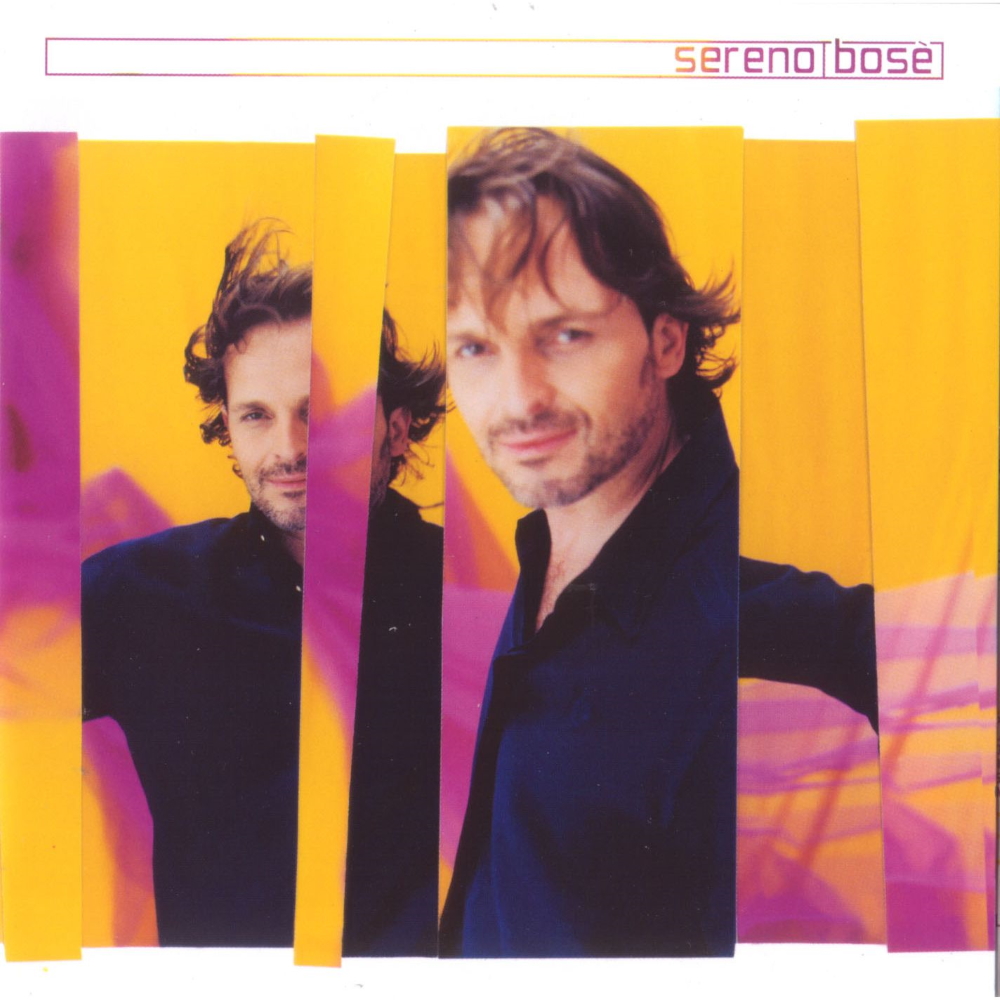Peter Walsh
music producer / sound engineer (Peter Gabriel & more)
GB
Simple Minds' 'New Gold Dream' as well as 'Penthouse and Pavement' by Heaven 17 - both listed in Roger Dimery's book '1001 Albums you must hear before you die' - Peter Gabriel's 'Plays Live' and 'Secret World Tour', the Latin Grammy-winning CD 'Sereno' by Miguel Bosé or the original score for 'The Brutalist` (Oscar-awarded at the Academy Awards in 2025!): Peter Walsh is - in one way or the other - responsible for all these recordings as being capable of fullfilling multiple functions like music producer, sound technician/sound/recording engineer or the man in charge for the audio mix.
Peter Walsh
music producer / sound engineer (Peter Gabriel & more)
GB

Peter Walsh (* 8 April 1960) started his career in the music industry in 1978/79 at ‘Utopia Studios’ in the British capital. The son of a showbiz family (father: professional guitarist, mother: dancer/singer) worked there on recordings of such artists as Spandau Ballet, The Boomtown Rats or Stevie Wonder. His breakthrough came in 1981, when he was still an assistant producer, with the debut album 'Penthouse and Pavement' by Heaven 17. The live-recording 'Secret World Tour' by former Genesis vocalist/lyricist Peter Gabriel earned Walsh a Grammy in 1994 in the category "Best Long Format Music Video" as audio-mix-engineer and co-audio-producer. The enthusiastic tennis player received the Latin American version of the highest international award for musicians and recording teams in 2002 for Miguel Bosé's 'Sereno' in the category "Best Male Pop-Vocal Album". Further projects include recording vocals with FKA Twigs, and mixing Latin legend Alejandro Sanz‘s No.1 Spanish-charts-album 'SANZ“' which was released in December 2021 and went straight to platinum.
Walsh has been engaged since 1983 by Scott Walker, formerly a member of the Walker Brothers (hit: 'The Sun Ain't Gonna Shine Anymore'), up to the death of this extraordinary artist in March 2019. The flamboyant singer compared the creative process of his unconventional solo-songs to that of a painter in the field of conceptual art. If a musician has such a special view of himself, this requires special knowledge on the part of the producer. The producer should not only know about sound technology and be able to translate the artist's desired moods into congenial sound images, but also have a good deal of creativity and empathy.
In addition to his many jobs as a freelance engineer/producer/mixer in genres ranging from folk to electronic, indie rock, Latin to pop or punk, Peter Walsh holds lectures and workshops for the Abbey Road Institute, an offshoot of the legendary London studio that gained international fame because of The Beatles recordings there, throughout Europe.
Peter Walsh has four sons and lives in London (GB).
Interview October 2015
The catcher in the recording studio: being very influential, but mostly staying on the sidelines
ABOUT INTUITION/IMAGINATION/INSPIRATION
The Romanian-French sculptor Constantin Brancusi said about his creation process: “Things are not difficult to make. What is difficult is, putting yourself in the state of mind to make them.“ Before the creativity, there is intuition. Where does this intuition come from, what sparks it? How does it manifest itself – is it only a vague idea or tangible (for example, in pictures)?
I think intuition (within a specific field) could be inherited from generation to generation. ‘It’s in his genes’, ‘It’s in the family’ or ‘it runs through the blood’ are common catch-phrases. There seems to be a built-in sign post signalling a starting point. It is a vague idea, a feeling, but only fleeting. One has to recognise it in the very early stages.
Is the timeframe of intuition only temporary or can it be supported by external factors?
I feel that I can revisit the moment where the intuition or idea first appeared, but it is not as strong.
Is intuition reliant on spontaneity or is it possible to engage this spiritual resource at any time, consciously? If so, how?
A bit of both - it seems to be spontaneously, but one can tap into it at particular times... - it’s not always there. One has to maybe call upon it to appear.
How important is the own physical constitution? Is it true that sadness equals creativity (or vice versa?) To quote the writer Miller Williams: „the saddest joys are the richest ones“…
Happiness or sadness should be the catalysts of creativity, but the end result is obviously very different depending how one feels.
Do calm and relaxation further the „best“ or is a tight deadline a stimulant for creativity?
Tight deadlines help you finish a particular project, but they are not conducive to creativity. One needs time and space for a good idea to arrive and to execute it.
Which place/what environment is best for the creation/work process?
It’s not so important. What you think might be the perfect place could lead to distraction and delay the creative process. Having said that though, I find the sea to be a huge stimulant. I have also felt that being in the middle of nowhere leads to loneliness which may restrict a particular thought process.
What, if there is a deadline, but no intuition?
Then one has to rely purely on experience.
Before intuition, is inspiration the primary catalyst? If so, what inspires you?
Could be – I find that a musical idea – a demo or a particular sound can inspire a great idea. In the early stages it’s not about the presentation, it’s about the bare bones of an idea.
According to Philip Roth, “amateurs wait for inspiration while professionals sit down and work.” How do you feel about that?
Yes, could be true. I feel that through experience and maybe routine one can unlock the ideas quicker. The longer you do it, the easier and quicker the process becomes.
How do you separate the good from the bad, how do you know which ideas to explore further, which ones are maybe even ahead of their time, visionary ideas and which are not?
When working with music one instinctively knows when you’ve hit on a revolutionary idea or something that could make or break a song.
What key criteria does the idea need to be viable?
Mostly the idea should be simple, easy to understand and to execute.
Do you write down an idea right away, because you might forget?
Yes.
How long do you ponder an idea before creatively working on it?
I try to execute it as soon as I can after it enters my mind. Then there will be a period of time where I will spend refining it until I feel I have maximised the potential.
ABOUT CREATIVITY
According to novel-price-awarded author Nelly Sachs “everything starts with yearning.” Do you agree?
Not necessarily.
Is it magic and fun or torture/blood, sweat & tears to be creative?
It can be both.
What is the process like from theory/idea to a practical creation?
It can be very frustrating or it can be plain sailing depending on the complexity, the personalities involved, and on the time available.
Can you force creativity? Are „drive“ and efficiency counterproductive?
Yes, maybe. It’s a question of searching for an entry point a lot of the time. It could be that you have to force an idea in order to open up other options, other doors.
How do you stimulate your creativity/are there specific rituals therefore or a muse?
In the initial stages one has to get into a particular frame of mind. Avoiding as many external influences as possible. There may also be certain places to access the initial thought or approach, in which case I would try to be in a particular location to tap into the flow of ideas.
Likewise avoiding certain negative places or situations might also ease the process.
When you are in a creative phase, are you working as if in trance?
Sometimes, but not for long. Usually, following the initial burst of energy, it becomes quite a mechanical process.
Which is better for creativity: discipline and structured time-management or idleness?
Both can work, but I would never recommend being idle. Being open is the best way, and knowing when the time is right to start.
Does age and life experience help with creativity or is a younger mind more creative, because it is fresh and untouched by experience? Does age equal more creativity? What about social / cultural heritage?
Both. However maybe a young mind has the ability to go further without being restricted by too much knowledge and experience. At the same time a wiser person will find it easier to save time and will know when there’s a dead end ahead.
How important is talent for creativity? Is art of any kind based on talent?
Yes, you have to know the basics to be able to utilise the talents you have.
Do you archive certain ideas to maybe check back when you are in a less creative phase?
Absolutely and I know a lot of creative people who do this as well.
Did you ever revisit an older idea, that you thought would be worthless but it turned out to be great/good? If so, why do you think that is?
Of course, but it‘s generally better to always be looking forward.
Is it better to be creative on your own, only trust your own instinct, or in a team? However, in a team - how much of your own, personal idea is really left afterwards?
It depends. If the team is all working in the same direction, then it can work. This is when the chemistry is right - however this situation is not always the case.
Is it true talent to trust other people to fill the gaps of your own deficits/ lack in creativity to produce something significant/great?
Yes.
Who’s leading in the creativity-process: craftsmanship or spontaneous intuition/inspiration?
I would say craftsmanship, because you have to know how to utilize this intuition…how to execute a particular idea. Someone needs to know what the big picture is.
Which roles play sincerity, authenticity, self-doubt when it comes to creativity and are they useful for the creative process?
All, and they are not helpful.
If you would make a pie chart: How are emotion, mind and commercial interests split in percentages when it comes to the creative process?
I would say that emotion and mind are 50:50. The commercial interest only comes into play, when you are working on something which has commercial potential. This is usually established at the outset.
Which is better in a developmental process: speed, meaning to grasp the magic of the moment, or a slow, ripening process when it comes to implementation and elaboration?
This depends very much on the artist and the dynamic of how one interacts with a third party. The development approach varies depending on personality.
What is the individual satisfaction based on: a) self-realization and individual fulfilment, b) the (artistic) recognition or c) commercial success?
B, C, A - in that order
What is your personal motivation for creative activity?
To create something that others will appreciate. And by doing so earning a living.
Which role does perfection play when it comes to creativity? Is a completely perfect opus soulless?
I am a perfectionist in many facets of my life. Perfection however can be perceived in many different ways. What is one person’s perfection may not be recognised in the same way by another. My perfectionism is a personal quality or aim to make the most of each opportunity along the creative path.
How much does routine influence creativity?
A lot! It can work as a positive or negative influence.
Can experience and professionalism make up for lack of creativity? And if so - how much?
Not really. Of course it depends on what is being created. I think though that generally a lack of creativity will result in short term satisfaction and transparancy.
What role does workmanship play in creativity? Can it be an obstacle?
Workmanship opens the gate through which creativity can flow. Capturing the creative process needs to be smooth and effortless and present no boundaries.
How is it possible to stay true to yourself artistically, but stay innovative at the same time? Can you keep re-inventing yourself without renouncing/denying your style?
Not applicable.
Is it desirable to be ahead of your time or does it cause to be misunderstood (or not understood at all)?
There is nothing wrong with being ahead of the times as long as your audience progress with you.
Are creative people especially sensitive, because they have a particular feeling?
Yes. However, the ego tends to act as protection.
When does the time come to end the creative process, to set the finalized work free - or is there a never-ending possibility of improvement?
The time to end the creative process usually arrives when there is a fear that a new addition could destroy what has already been created.
ABOUT SUCCESS
Is there a rule for successful artistic work, an individual prototype for success? In short: Is success projectable?
Probably, but one has to first recognise the talent.
When something is successful, how big is the temptation to recycle it, to repeat the successful prototype and not develop further?
It is very tempting, but I feel that the follow-up should always offer a new feature. One can repeat the basic framework/structure, but always try to add new elements on top.
How big of a role does coincidence play when it comes to mass reception/popularity? Or: why is someone successful and someone else is not, even though they are similarly talented?
I don’t think coincidence plays a big part. Success is governed by more than just how a person or product is perceived. Additional factors such as timing, marketing and promotion all play a huge role.
Should you be able to predict characteristics, needs and desires of your potential audience to be successful?
Yes.
How do you stay open to critique despite success?
Feedback is always good – whether positive or negative.
However, one does not have to agree with a criticism - good or bad.
Do you have to be driven, do you have to be addicted to achieve the next time, what didn’t work this time?
Yes, one has to be driven and have a lot of discipline
Did you ever deliver something that you thought was mediocre – but was successful?
Yes.
What could be the reason for being successful over a long series of time and all of a sudden the success is gone? Is this a matter of the contemporary taste and different times or is it just a natural development that once one is on top for some time, there’s only one way - down?
Contemporary taste and trends have a lot to do with it, but I don’t feel that it is a natural development. Many successful people will decide when the right time is to step down or move on. This may be because they feel they have achieved all they want to achieve in a particular sphere. Normally you will see these same people emerge in a different area and often be equally successful.
How do you deal with failure? Is it important to have perseverance because success might come later on?
Failure is difficult to categorise: A commercial failure or a personal one? Commercial success does not only depend on the artist. There are many outside influences that ultimately decide on the success of a particular product. Personal failure is another thing… when one feels that one hasn’t made the most of a particular opportunity.
How do you deal with a moment, where your individual, perfect work has been created, maybe has been praised and nominated with all possible awards – what will be next? Or is the personal peak also “the end”?
With confidence, happiness and determination that the next one will perform just as well. A personal peak is by no means the end. It is more likely to be the beginning.
If this is a possibility – is it even desirable to create the ultimate, perfect work?
One has to always strive to create the best. To purposely underachieve is the quickest route out.
MY FAVORITE WORK
“It’s difficult to pin point one particular project that represents my work best. The commercial and artistic success of my production with Simple Minds and Peter Gabriel gave me a certain status in the music-business and offered me a path to a long and varied career, working with world-class-artists like Scott Walker, Miguel Bosé and Gilbert O’Sullivan.
My inspiration is generally derived and fed by the artists and the music I work with. It is based on the desire to fulfil the ambitions of the artist, the producer (myself) and ultimately the listener.”




